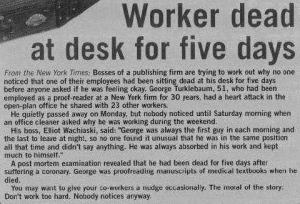Most attorneys use a shotgun in their marketing. They spray marketing pellets far and wide, hoping to hit anything that flies by. Because they aren’t focused, they spend too much time (and money) and are often frustrated with their results.
The most successful attorneys use a rifle in their marketing. They aim at carefully selected prospective clients and referral sources. They may not always hit something, but when they do, the usually win the big prize.
Let’s look at two estate planning attorneys seeking to build their practice through networking.
Attorney number one goes to a networking event at his local Chamber of Commerce. He meets as many people as possible and comes home with 20 or 30 business cards. He sends everyone a “nice to meet you” email and waits to see what happens. And waits. And waits. Because everyone he met is busy, and also marketing with a shotgun, not much happens.
Attorney number two focuses on professionals in the health care industry, so he attends a networking event sponsored by an association of health care professionals. Before he goes, he does some homework. He finds out who will be speaking at the event, and gets a list of the event organizers and committee heads. He Google’s these people’s names, visits their websites, and sets up files on three people he wants to meet at the event. He knows where they work, what they do, and what’s important to them.
At the event, he meets with his chosen three. He takes notes about their conversations. He hits it off with the administrator of a big hospital, in part because they know some of the same people.
The attorney sends follow-up emails to his three. He notes that one belongs to another organization which has a meeting scheduled in two months, and makes a note to ask him if he will be attending that meeting.
The attorney calls a physician he knows whose name came up in his conversation with the hospital administrator. He tells him about his meeting and asks a few questions about the administrator, adding this information to his notes. He says something nice about the administrator.
He does more research on the administrator and his hospital. He finds out which law firms represent the hospital. He subscribes to their newsletters. He does the same thing for the hospital’s insurance brokers, accounting firms, and some of their major suppliers. He sets up Google alerts for these firms and their partners or principals, so he can stay up to date on any news.
He calls the administrator and leaves a voice mail message. He says he enjoyed meeting him and says he spoke to the physician they both know and told him about their meeting. He says the physician said to say hello.
He emails a copy of an article he just wrote for a health care web site to the three people he met at the event. Because he took notes, he is able to add a personal note to each email, mentioning something they talked about at the event.
Okay, you get the idea.
Attorney number two is focused. He doesn’t try to meet everyone, he is selective. He does his homework and he follows up. And because he’s not “targeting” everyone, he has the time to do it.
Attorney number one may get some business from his Chamber of Commerce network. But attorney number two is networking with heavy-duty centers of influence in a niche market. Because he specializes in that market, those centers of influence will notice him and eventually, provide him with referrals and introductions to other centers of influence in that market.
Marketing legal services with a shot gun can make you a living. Marketing with a rifle can make you rich.
Want help choosing the right niche market for your practice? Get this.








